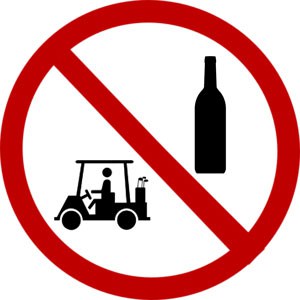A longtime friend recently received their jury summons in the mailbox. Not looking forward to completing their civic duty, they asked "Can you get me out of jury duty?". This question caused me put together a list of the some of the frequently asked questions I receive as a criminal defense attorney in Charlotte. On that note:
1. Can you get me out of jury duty?
No. Everyone must complete their service. Depending on your county and circumstances, an extension can sometimes be requested but that must be handled through juror services at the courthouse. I can advise you on lunch places, where to park and let you know that Mecklenburg County has one of the nicer juror waiting rooms, but I cannot get you out of service. Try to enjoy it and the opportunity to see the system at work.
2. If the officer doesn't show up on my first court date, does my ticket get dismissed?
No. In most North Carolina counties, including Mecklenburg, Gaston and Union County, your first court date is an administrative court date. An officer is not subpoenaed to come to court on this date. If the case is not settled that day, it can be set for trial. The case will then be continued to one of the officer's two monthly court dates and the officer will be subpoenaed.
If the officer does not show on that date, the District Attorney will often be granted one additional continuance. However, the officer is usually present as they have numerous cases set that day, including DWI's, theft cases and assault cases. A judge will also find good cause for continuance if the officer has required training, approved vacation or military leave.
3. My speeding ticket states I have a mandatory appearance. Do I have to appear in court?
Yes, unless you have an
attorney appear for you by waiver of appearance. Attorneys regularly appear for clients in Mecklenburg County District Court for
traffic tickets, theft cases and other misdemeanor offenses. Courtroom 1130 can have over 1000 cases set in one day. Talk to an attorney before you go to court. An attorney can often handle the case for you. If you live out of state, the cost will usually be less than the cost of an airline ticket.
4. Can I get my traffic ticket dismissed because the radar wasn't working correctly?
Hundreds of traffic tickets are issued every day in North Carolina. Most state troopers and police officers do not rely exclusively on radar. Case law in North Carolina allows officers to testify to a visual speed based on their training and experience. Surprisingly, case law also permits a lay person to testify to speed estimates. Radar is not the only tool used by law enforcement.
5. My name is spelled wrong on my criminal or traffic citation. Can it get thrown out based on wrong spelling?
No. The District Attorney can request to amend to conform the pleadings at any time in the proceedings, including during trial. In most situations, this is permitted.
6. Can I pay a fine for my traffic ticket online so I don't have to hire an attorney or go to court?
I always recommend consulting with an attorney before paying fines online. There can be adverse and unforeseen consequences.
Some traffic violations can be paid online. I do not recommend this as they often have insurance implications. Many are surprised to hear that a stop sign violation is 3 points in North Carolina. Many times an attorney can negotiate a result that does not cause a points or insurance premium increase.
Another example of paying a fine online involves
underage drinking. I had a client charged with underage drinking. The parent went online and paid court costs. The case was closed. However, the parent was unaware that by paying the fine, the child admitted to the offense, had a criminal conviction, and DMV subsequently mailed notice of a yearlong license revocation.
The family contacted me for help. I was able to file a motion for appropriate relief (MAR), had the case reopened and the conviction set aside. The client committed a class for dismissal of the charge. The charge was later expunged and the case is sealed.
More commonly asked question to come later on Miranda rights and fingerprint evidence.
Traffic and Criminal Law Updates Provided by the Law Office of Carilyn Ibsen (888)543-2427
